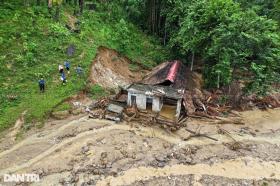# Growing Up: A Journey of Self-Discovery
## Mở Đầu
Growing up is an inevitable part of life that shapes us into the individuals we become. It is a fascinating journey filled with experiences, challenges, and discoveries that lay the foundation for our future. From childhood innocence to the complexities of adulthood, each stage offers unique lessons and opportunities. In this article, we will explore the multifaceted nature of growing up, examining its emotional, social, and psychological dimensions.
## 1. Childhood: The Foundation of Growth
### 1.1 Innocence and Imagination
Childhood is often viewed as a period of innocence, where imagination reigns supreme. During this stage, children are free to explore their surroundings without the weight of societal expectations.
### 1.2 Learning Through Play
Play is a vital aspect of childhood that fosters creativity and social skills. Children engage in imaginative games that not only entertain but also serve as a framework for understanding the world around them.
### 1.3 Formative Experiences
The experiences we have during childhood, whether positive or negative, significantly shape our personalities. Events such as family dynamics, friendships, and schooling contribute to our emotional development.
## 2. Adolescence: Navigating Change
### 2.1 The Storm of Emotions
Adolescence marks a turbulent period characterized by emotional upheaval. Hormonal changes lead to mood swings and heightened sensitivity, which can make this phase challenging.
### 2.2 Identity Formation
During adolescence, individuals begin to grapple with questions of identity. This is a time for self-exploration as teens search for their place in the world, often experimenting with different roles and appearances.
### 2.3 Peer Pressure and Social Dynamics
Friendships become increasingly important during adolescence. Many teenagers face peer pressure, which can influence their choices and behaviors. These relationships play a crucial role in shaping self-esteem and social skills.
## 3. Young Adulthood: Facing Responsibility
### 3.1 Transitioning to Independence
Young adulthood brings newfound independence but also greater responsibilities. The transition from school to work can be daunting, as individuals must learn to navigate the complexities of financial independence, career choices, and relationships.
### 3.2 Balancing Freedom and Accountability
While young adults relish their freedom, they also face the challenge of being accountable for their decisions. This balance is critical as it sets the stage for future growth.
### 3.3 The Search for Meaning
Many young adults enter a phase of searching for purpose. Questions about career paths, relationships, and personal values dominate their thoughts as they strive to define what success means to them.
## 4. Adulthood: Embracing Complexity
### 4.1 The Weight of Expectations
Entering adulthood often comes with societal expectations regarding career, family, and stability. These pressures can lead to stress and anxiety, making it imperative for individuals to find a balance between personal aspirations and external demands.
### 4.2 Lifelong Learning
Adulthood is a continuous learning process. The experiences gathered over the years influence decision-making, and individuals often find themselves returning to school or pursuing new skills to adapt to changing realities.
### 4.3 Relationships and Connections
Building and maintaining relationships becomes more complex in adulthood. Whether it’s romantic partnerships, friendships, or professional networks, the quality of these connections has a profound impact on our well-being.
## 5. Aging: Reflections on Life
### 5.1 The Passage of Time
As we age, reflections on life become more significant. Many individuals begin to evaluate their past choices, dreams, and regrets, leading to a deeper understanding of their life’s journey.
### 5.2 Legacy and Impact
Older adults often think about the legacy they wish to leave behind. This reflection can motivate individuals to contribute positively to their communities or mentor younger generations.
### 5.3 Acceptance and Wisdom
Aging brings with it a level of acceptance and wisdom that can be liberating. With experience comes the ability to appreciate life’s complexities and embrace the inevitability of change.
## 6. The Emotional Rollercoaster of Growing Up
### 6.1 Finding Emotional Resilience
Throughout the process of growing up, emotional resilience plays a crucial role. The ability to cope with disappointments, failures, and setbacks is essential for personal growth.
### 6.2 Understanding Feelings and Mental Health
Navigating the emotional landscape of growing up requires a strong understanding of one’s feelings and mental health. Recognizing the importance of seeking help and support can lead to healthier coping mechanisms.
### 6.3 Celebrating Achievements
As we grow, it's important to celebrate both big and small achievements. Acknowledging and appreciating progress fosters a positive mindset and encourages continued growth.
## 7. Cultural Influences on Growing Up
### 7.1 Societal Norms and Values
Cultural factors significantly influence how one experiences childhood, adolescence, and adulthood. Societal norms shape expectations, behaviors, and ideals, impacting personal development.
### 7.2 Family Dynamics
Family plays a pivotal role in shaping our beliefs and values. The dynamics within families can influence everything from self-esteem to career aspirations.
### 7.3 Media and Technology
In today’s digital age, media and technology play a significant role in shaping experiences. Social media can impact self-image, while access to information can facilitate learning but also create confusion.
## 8. Embracing Change and Growth
### 8.1 The Importance of Adaptability
Embracing change is essential for growth. Life is full of surprises, and the ability to adapt can determine how we respond to challenges.
### 8.2 Continuous Self-Reflection
Regular self-reflection allows for insightful understanding of oneself. By assessing our motivations, beliefs, and choices, we can align our actions with our values.
### 8.3 Building a Support Network
Creating a robust support system is crucial in navigating the complexities of growing up. Friends, family, mentors, and professionals all play a role in providing guidance and assistance.
## Kết Luận
Growing up is a continuous journey filled with invaluable lessons and experiences that shape our identities. It requires us to confront challenges, embrace change, and discover who we truly are. By understanding the various stages of life—from childhood to aging—we can appreciate the richness of our experiences and the wisdom that comes with time. Ultimately, it is the journey itself that defines us, guiding us on the path of self-discovery and personal fulfillment.









Đăng thảo luận